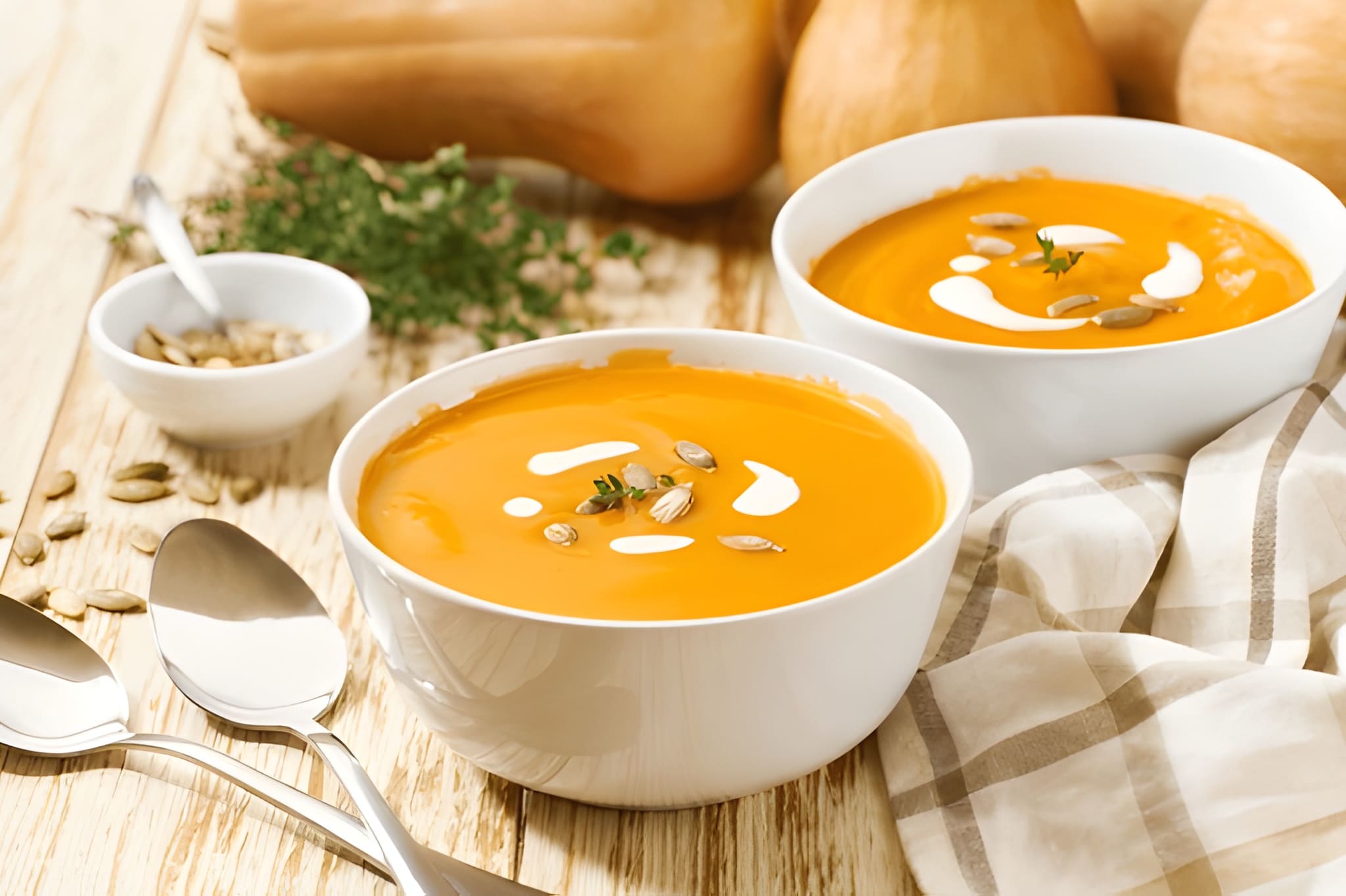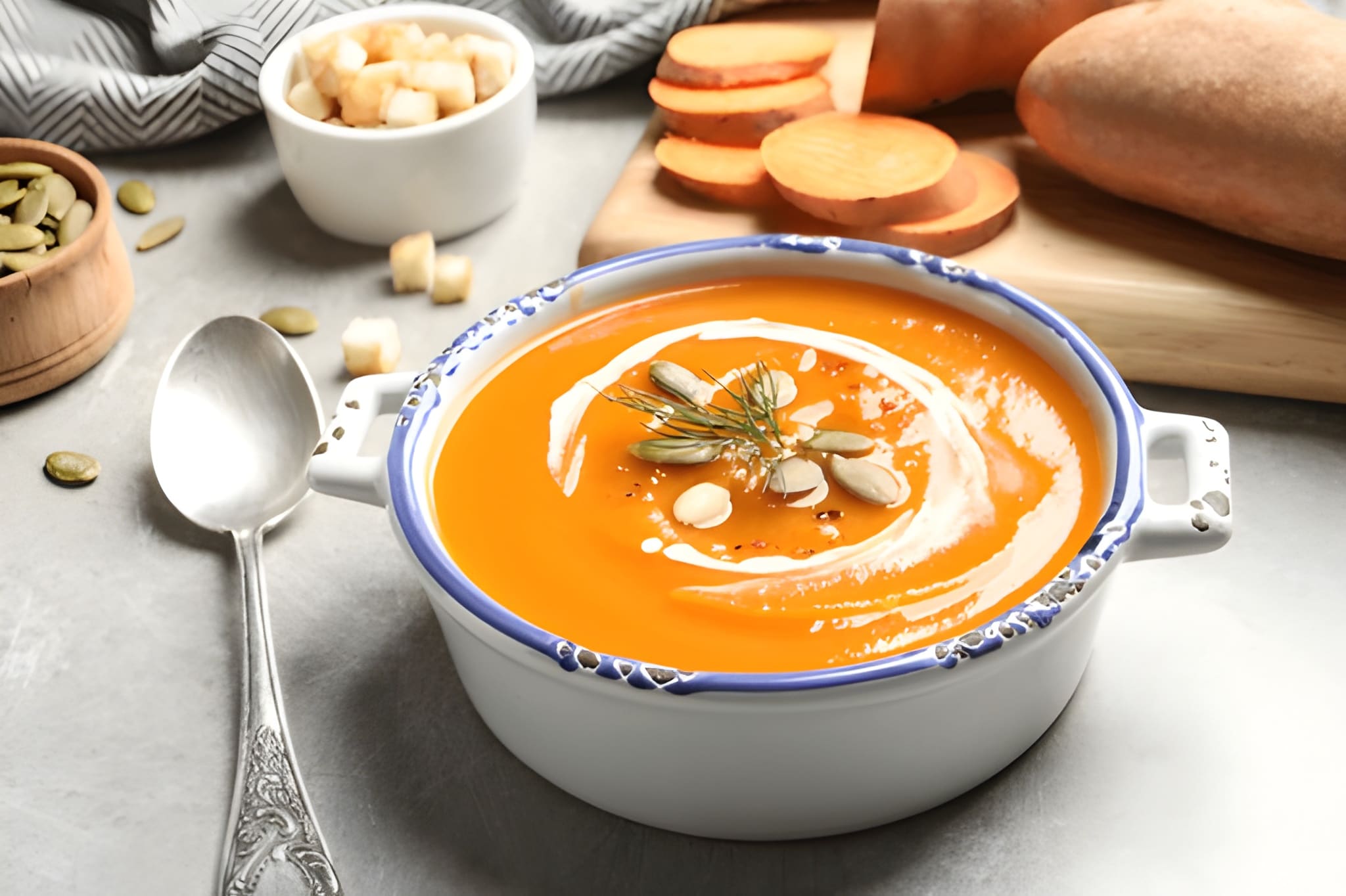Summer Squash Soup is a light, creamy, and refreshing dish that captures the essence of the summer season. Made from tender yellow squash or zucchini, onions, garlic, and herbs, this soup celebrates the bounty of the garden in every spoonful. Its smooth, velvety texture and mild, slightly sweet flavor make it perfect as a starter or a wholesome light meal.

Summer Squash Soup:
This dish has its roots in rustic country cooking, where home gardeners found creative ways to use abundant summer squash. Over time, it became a popular seasonal soup served both warm and chilled, highlighting the freshness of simple ingredients. Whether enjoyed hot with crusty bread or cold on a sunny afternoon, Summer Squash Soup delivers both comfort and elegance.
History:
Summer squash, native to the Americas, has long been a staple in seasonal cooking. Early European settlers quickly adopted it, incorporating it into soups and stews for its mild taste and tender texture. In modern cuisine, chefs have refined these humble beginnings into smooth, flavorful soups that showcase the vegetable’s natural sweetness and golden color. The result is a dish that’s simple, nutritious, and timeless.
Subscribe to our youtube channel Kitchenpedia for more delicious recipes and hit the like button if you enjoyed this youtubevideo. Share it with your friends and Family.
Summer Squash Soup
Ingredients
- 2 tablespoons olive oil or butter
- 1 medium onion, chopped
- 2 cloves garlic, minced
- 4–5 medium yellow squash (or zucchini), sliced
- 3 cups vegetable broth (or chicken broth)
- 1/2 cup cream or milk (optional, for creaminess)
- Salt and pepper to taste
- 1 tablespoon lemon juice (optional, for brightness)
- Fresh herbs (thyme, basil, or parsley) for garnish
Instructions
- Sauté Aromatics: In a large pot, heat olive oil or butter over medium heat. Add onions and cook until soft and translucent.
- Add Garlic and Squash: Stir in garlic and sliced squash. Cook for 5–7 minutes, stirring occasionally, until squash begins to soften.
- Add Broth: Pour in the vegetable broth and bring to a gentle boil. Reduce heat and simmer for 10–12 minutes, until the squash is tender.
- Blend the Soup: Use an immersion blender (or transfer to a blender) to puree the soup until smooth and creamy.
- Season and Serve: Stir in cream or milk (if using), season with salt, pepper, and lemon juice. Reheat gently if serving warm.
- Garnish: Serve with fresh herbs, a drizzle of olive oil, or a sprinkle of Parmesan cheese.
Notes
- Yellow squash and zucchini can be used interchangeably.
- For a dairy-free version, skip the cream and add coconut milk or almond milk.
- A squeeze of lemon enhances the flavor and keeps it bright.
- You can enjoy this soup hot or chilled, depending on the season.
- It pairs beautifully with crusty bread or a light salad.
Tips for Summer Squash Soup:
- Roast the squash first for a deeper, caramelized flavor.
- Add a potato while cooking for extra creaminess without using dairy.
- For a spicy twist, add a pinch of chili flakes or cayenne pepper.
- Top with toasted pumpkin seeds or croutons for crunch.
- Blend in fresh basil for a summery herbal note.
FAQs for Summer Squash Soup:
Q1: Can I use zucchini instead of yellow squash?
Yes! Zucchini works perfectly and gives the soup a similar flavor and texture.
Q2: Can I freeze Summer Soup?
Yes, it freezes well for up to 3 months. Reheat gently before serving.
Q3: Is this soup vegan?
It can be made vegan by using olive oil and skipping cream or using plant-based milk.
Q4: Can I serve it cold?
Absolutely! Chilled squash soup is wonderfully refreshing in summer.
Q5: What herbs go best with squash soup?
Thyme, basil, chives, and parsley all complement squash beautifully.
Conclusion:
Summer Squash Soup is a golden, silky celebration of the season’s freshest produce. With its light flavor, creamy texture, and bright notes, it’s an easy yet elegant dish that brings comfort and freshness to your table. Whether served warm in early summer or chilled on a hot afternoon, this soup is a delicious reminder that simplicity often makes the best meals.

